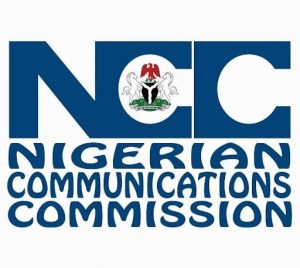NIN verification: Glo,9mobile lead as Nigeria’s telecom sector loses over 64m subscribers
October 29, 2024953 views0 comments
Joy Agwunobi
Nigeria’s telecom industry has experienced a substantial contraction in its mobile subscriber base following the recent National Identification Number (NIN) verification exercise, which concluded on September 14, 2024.
According to the latest statistics from the Nigerian Communications Commission (NCC), the verification exercise, which required all active SIM cards to be linked to NINs, led to the deactivation of over 64 million mobile lines across the country’s four major telecom operators—MTN, Airtel, Globacom, and 9mobile.
This mass deactivation altered the industry’s landscape, with Globacom and 9mobile bearing the brunt of the losses due to unverified lines.
In a detailed breakdown of the figures, Globacom, which reported 62.2 million active subscribers in March, saw its numbers reduced to just 19.15 million by the end of September. This drop left the operator with a 12.39 percent market share, indicating a loss of around 43 million subscribers.
Read Also:
- NCAA charged by HoR to enforce disabilities Act in aviation sector
- PenCom, Lagos push for informal sector inclusion in pension scheme
- GDP, progress, and the price of complacency in Nigeria
- Nigeria has no business in a U.S.–China trade war
- Nigeria’s new import substitution strategy must go beyond slogan
Similarly, 9mobile, which has been facing challenges in maintaining its market position, saw its subscriber count fall from 11.7 million in March to 3.64 million by the end of September, reducing its market share to a mere 2.35 per cent . The substantial losses faced by these two operators were primarily attributed to a large number of their customers failing to comply with the NIN verification requirements.
Despite the widespread deactivation, MTN Nigeria managed to retain its dominant position in the market, the operator concluded September with 78.1 million active subscribers, accounting for 50.5 percent of the market share. However, MTN still experienced a reduction of 3.7 million active lines compared to its subscriber base of 81.8 million in March.
Airtel Nigeria, which holds the second-largest market share, ended September with 53.7 million active subscribers, representing 34.76 per cent of the market, this figure marked a drop of approximately 9.6 million subscribers from March, when Airtel’s active lines stood at 63.4 million.
Overall, the SIM deactivation initiative resulted in a steep reduction of the total number of active mobile subscriptions in Nigeria, which dropped from 219 million in March to 154.6 million by the end of September.
Telecom operators had previously raised concerns about the financial implications of the NIN verification process. Airtel Africa, the parent company of Airtel Nigeria, indicated in its financial results for the quarter ending June 30, 2024, that it could potentially lose up to $4 million in monthly revenue due to unverified NINs.
The company disclosed that approximately 4.9 million of its customers’ NINs were still unverified as of June. Similarly, MTN Nigeria had disconnected about 4.2 million unlinked lines by February 28, 2024, but emphasised that the disconnections primarily affected low-value subscribers, which mitigated the impact on its revenue.
The SIM-NIN linkage initiative, implemented in 2020, by the NCC was aimed at improving national security and identifying criminal activities. The policy mandated the linking of all SIM cards with verified NINs and introduced strict age restrictions, prohibiting individuals under the age of 18 from registering new SIM cards.
Despite numerous deadline extensions and warnings from the NCC, a substantial number of SIM cards remained unverified, leading to their eventual deactivation, while the policy has strengthened security protocols within the telecom sector, it has also triggered considerable changes in the industry’s dynamics.
As Nigeria’s telecommunications landscape continues to evolve, operators are faced with the dual challenge of recovering from the substantial losses in subscriber numbers while adapting to new regulatory requirements.

